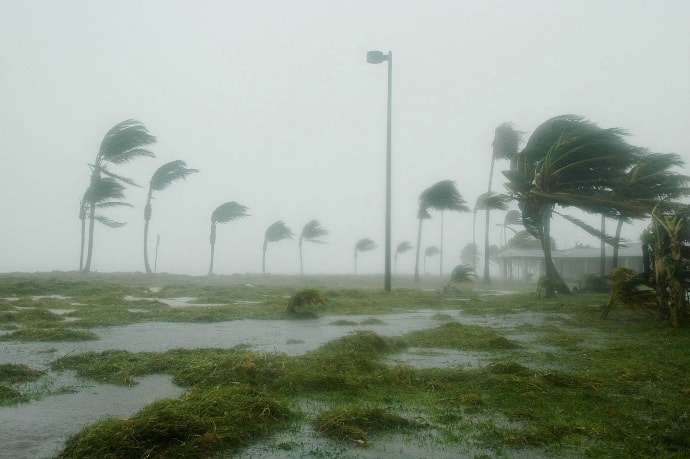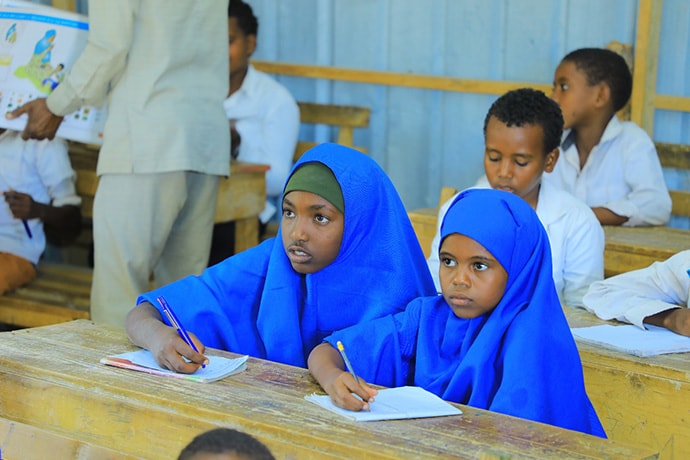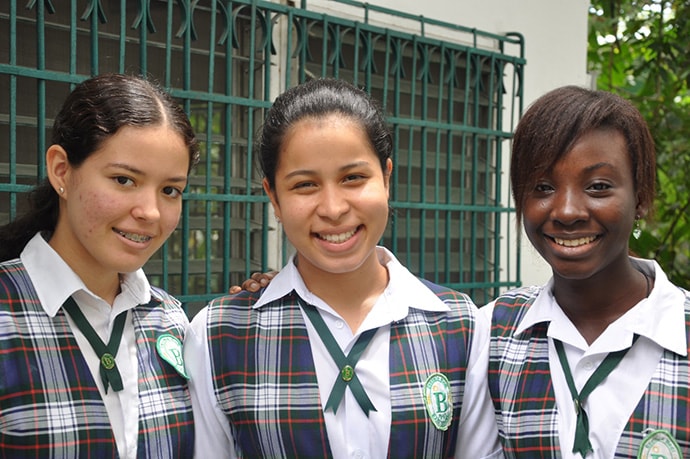Blog
Posted on September 3, 2024

Hurricane in the tropics. Photo: Unsplash
By Tracey Compton, Mercy Corps Senior Media and Communications Coordinator
The Caribbean has been labeled ground-zero for climate change, with each hurricane season as unpredictable as the last. Climate change is making hurricanes and other climate disasters more frequent, more intense and less predictable – with community preparedness education increasingly essential. This makes the region an ideal setting for testing new approaches to climate resilience that focus on education and building responsive community networks. Drawing on proven results from our experience in Puerto Rico after Hurricane Maria, Mercy Corps’ is partnering with local organizations to drive resilience in a region that has faced catastrophic devastation and will remain incredibly vulnerable to climate disasters. The Resilience Hub model demonstrates what is possible when you center local communities in climate resilience and emergency preparedness efforts. This will become increasingly urgent in the Caribbean and other climate-vulnerable regions as the climate crisis intensifies.
Continue Reading
Posted on August 27, 2024
By Hassan H. Inrahim Mohamed, Advocacy and Communications Coordinator, Gargaar Relief and Development Organization (GREDO)

Girls in School with learning materials provided by GREDO. Photo: GREDO
GREDO’s education program has been progressively making sustained efforts in the recent years to avail education services to the neediest out of school children in the served communities. Below are some of the areas the education program focuses on:
Provision of Teaching and Learning Materials (TLMs)
A critical component of the GREDO Education Program is the provision of Teaching and Learning Materials (TLMs). These resources are essential for effective teaching and learning, particularly in under-resourced areas. GREDO works to supply schools with age-appropriate textbooks, learning aids, and other educational materials, ensuring that both teachers and students have the tools they need to succeed. By enhancing the quality of education through TLMs, GREDO helps to create a more engaging and effective learning environment.
Continue Reading
Posted on August 26, 2024
By Laura Baerwolf, Chief Operating Officer, Mona Foundation

Students in the Badi School, Panama. Mona Foundation partnered with Badi School in 2000, lending support as the school increased the number of grades and classrooms, built a common room, a library, and technological and scientific labs, and developed its arts and character-building programs. Today, Badi School serves over 400 students from 1st grade through 12th grade, 57% of whom are girls. Photo: Mona Foundation
Sustainable Development Goals (SDGs) provide a shared blueprint to achieve a better and sustainable future for all. Education sits at the centre of this 2030 Agenda as a primary driver of progress across all 17 SDGs and as the bedrock of just, inclusive and peaceful societies.[1]
Since 1999, Mona Foundation has partnered with grassroots organizations around the world to address the root causes of poverty and effect systems change through the twin strategies of universal education and gender equality.
Continue Reading


